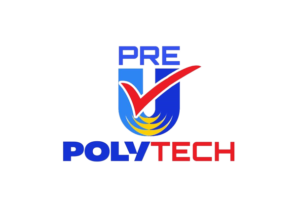
Student Welfare policy
BACKGROUND & RATIONALE – PREU POLYTECH has established a policy framework for student welfare. These policies have been contextualized for PREU POLYTECH’s school environment so that our policies reflect the needs of our students. PREU POLYTECH is committed to being a place of welcome and safety for students and their families. The welfare of each of our students is our foremost priority and we are committed to strengthening the wellbeing and learning outcomes of all students within a safe, inclusive, and respectful learning environment.
PRINCIPLES – This policy requires that the College must ensure that the care, safety, and welfare of all students attending PREU POLYTECH is in accordance with any applicable laws, and that all staff are advised of their obligations under those laws.
POLICY STATEMENT – PREU POLYTECH has a range of student welfare and safety policies designed to ensure the care, safety and welfare of all students at the Institution. All staff are advised of their obligations under relevant laws, including child protection and occupational health and safety laws, at induction and then on an ongoing basis at least annually and when necessary. In addition to a high-level Student Duty of Care Policy which explains the duty of care owed to our students and how staff are required to discharge their duty of care, the POLYTECH has developed a complete Student Duty of Care Program which addresses specific student care, safety and welfare issues at the College.
PROCEDURES – PREU POLYTECH Student Welfare policies and procedures take into account that different and sometimes greater measures may need to be taken for vulnerable students, younger students or students with disabilities, in order for the College to provide the best care for our students and to discharge our duty of care. Our policies on student welfare are detailed in our Student Duty of Care Program and include:
- Student Welfare & General Safety Policies
- Bullying Prevention & Intervention
- Cyber Safety
- Harassment Policy (Student Against Student)
(See also College Complaints Policy and procedures).
STUDENT CARE – Our policies on student care are detailed in our Student Duty of Care Program and include:
- First Aid and Medical Treatment
- Medication Administration
- Current Register of Staff Trained in First Aid
- Medical Records
- Medical Health Care Plans
- Anaphylactic Shock Management
ADDITIONAL STUDENT WELFARE POLICIES – Our additional policies on student care, safety and welfare are detailed in our Student Duty of Care Program and include:
- Accident Management
- Capturing Records of Student Injuries/Harm and Near Misses
- First Aid Policy and Procedures
- Information & Communication Technology (ICT)
- Critical Incident (Emergency Situations) Response Plan
- Emergency Management Plan
SHARED RESPONSIBILITY FOR COURSES WITH OTHER PROVIDERS – Where the College shares responsibility for a course with another provider, we maintain a copy of the written agreement between the providers that states how each party manages its legal obligations for these students. This includes how each student attends the course, travels between the providers, or goes on excursions.
DOCUMENTATION – The College maintains documentation in relation to our responsibilities to students with special needs who access our courses. This documentation is maintained by the Dean of Students and copies of all documents are stored on the staff collaboration drive.
COMMUNICATION – These policies and procedures are communicated to staff, students, guardians, parents and the College community through:
- the College website
- the Staff Manual and Staff Policy
- the College Handbook (Parents and Students)
- announcements in the College newsletter.
Student feedback & complaints policy
Student Feedback and Complaints Policy
PURPOSE – PREU POLYTECH is committed to using evidence-based continuous improvement practices to ensure a high-quality experience for students. PREU POLYTECH analyses the information provided through student survey feedback systems using it to develop action plans to support continuous improvement in teaching, student guidance and support, and facilitation of successful learning. This policy requires that students are kept informed of developments resulting from their feedback.
OBJECTIVES – This policy ensures that the PREU POLYTECH has in place coherent and consistent processes for gathering regular and timely feedback from students to inform the decisions it makes to improve the learning experience for students. It ensures that PREU POLYTECH uses a range of structured and informed, in person and online methods including:
- Student surveys.
- Evaluations of teaching.
- Small group meetings.
- Student representative meetings.
- Formal and informal complaints and concerns mechanisms.
It further ensures that feedback is provided to students on how the feedback provided has been used to inform continuous improvement. The policy applies to all staff and students.
PRINCIPLES – All students and stakeholders have the right to provide feedback, both positive and negative, about any aspect of their experience with PREU POLYTECH and/or raise concerns where they believe standards in teaching, learning, guidance and support or pastoral care have not been met.
ETHICAL, HONEST AND TRANSPARENT PRACTICE – When receiving feedback from students PREU POLYTECH shall ensure:
- Procedures are fair, ethical, transparent, equitable and timely and result in appropriate action.
- People are dealt with respectfully and ethically.
- Information collected, analyzed and used, protects affected person’s privacy and confidentiality (where necessary);
- The learning resulting from the feedback is used to inform continuous improvement.
- Communication on actions taken as a result of feedback is provided to students.
MULTIPLE FEEDBACK POINTS – Student feedback will be obtained using a range of formal (structured) and informal (ad hoc) instruments and processes used at different stages of the student’s learning journey. Students will be invited to provide structured feedback using mechanisms that include:
- Structured surveys and/or evaluations that will be scheduled throughout the student’s learning experience by Head of School/Dean of Students/Chair Academic Committee, Tutors, and administration teams.
- Graduate tracking from the time of graduation for two years
- Informed processes will address any issues that arise from student representatives, student concerns or complaints.
RECEIPT AND USE OF FEEDBACK – Student Course Evaluation reports will be collated from the data obtained at the end of the course and will be provided to Programme Committees/Results Committees to assist them with their self-assessment deliberations and to identify areas for improvement and/or immediate action. Student feedback will be used as one source of information to answer the following Key Evaluative Questions (KEQs):
- How well do programme design and delivery, including learning and assessment activities, match the needs of students and other relevant stakeholders?
- How effectively are students supported and involved in their learning?
- What is the value of the outcomes for key stakeholders, including students?
Student Tutor Evaluation will be collected, and the data obtained will be made available to tutor(s) and will be provided for inclusion in annual Performance Appraisals. The data will also inform ongoing professional development and be summarized in Annual Programme Evaluation Reports. Changes made as a result of feedback will be reported to students through a range of mechanisms including student representatives.
COMPLAINTS AND CONCERNS – Students may express concern about anything that they believe breaches their rights as a student or where they believe the standards of teaching or other services offered under their contract with PREU POLYTECH are not met.
- PREU POLYTECH will receive, acknowledge, register and act upon concerns and complaints.
- PREU POLYTECH will seek to facilitate the timely, constructive and fair resolution of concerns and complaints to the satisfaction of all parties.
- PREU POLYTECH will abide by the provisions of the Privacy Act and maintain an environment in which tolerance, confidentiality, courtesy and mutual respect are fostered at all times.
This policy covers concerns and complaints about PREU POLYTECH services in relation to:
- Academic policy and procedures.
- Programme content.
- Programme delivery.
- Employee and student conduct.
- Facilities and equipment – provision, maintenance and access.
- Administrative and student learning support groups.
PREU POLYTECH RESERVES THE RIGHT NOT TO PROCEED WITH A COMPLAINT
Which is anonymous or based on hearsay; or
- Contains insufficient or incomplete information; or
- Which is made more than ninety days after the alleged incident: or
- Where no response is received from the complainant within ninety days of correspondence regarding the complaint.
PROCEDURE FOR COMPLAINTS –
Communication of Policy
- Policy is communicated to staff.
- Students are advised of PREU POLYTECH complaints process in the Student Handbook.
Formal Complaints Procedure
- In the first instance the student making the complaint should be encouraged to clearly define the problem.
- The student may talk informally with their Tutor/Lecturer to resolve the concern or complaint. They are entitled to take a support person with them.
- If the Tutor/Lecturer has not been able to address the concern/complaint satisfactorily, the Tutor/Lecturer should refer them to the most appropriate person.
- Failing a satisfactory resolution, the student (or support person/s) should make a formal complaint in writing using the complaints form, to the Head of School/Dean of Students/Chair Academic Committee.
- All written complaints will be acknowledged in writing within five working days, including an estimated timeframe for response to the complaint.
- The Head of School/Dean of Students/Chair Academic Committee must ensure any employee named in the complaint receives a copy of the complaint as soon as practicable. The complaint must be considered in accordance with the principles of natural justice and ensure all parties to the complaint are accorded the full benefit of those principles. The process may include meetings with relevant staff and/or the complainant. Where meetings are held, the parties may if they wish, be accompanied by a support person.
DOCUMENTATION
Documentation held relating to complaints comprises:
- Complaints form


